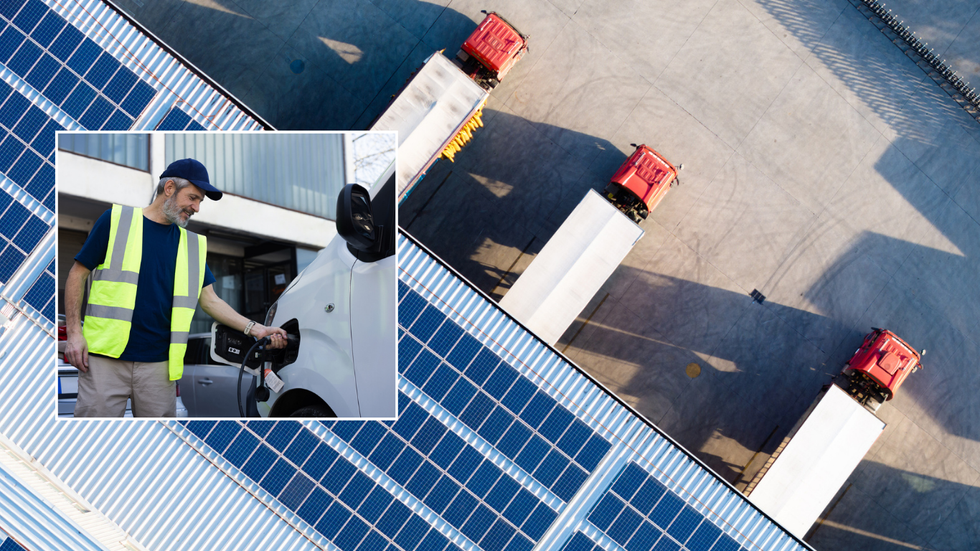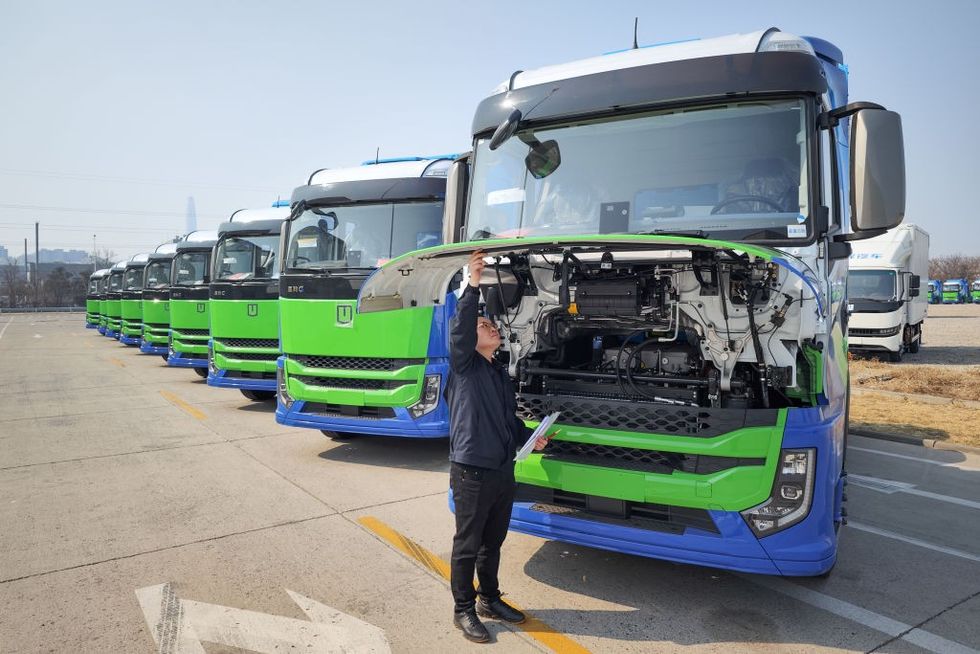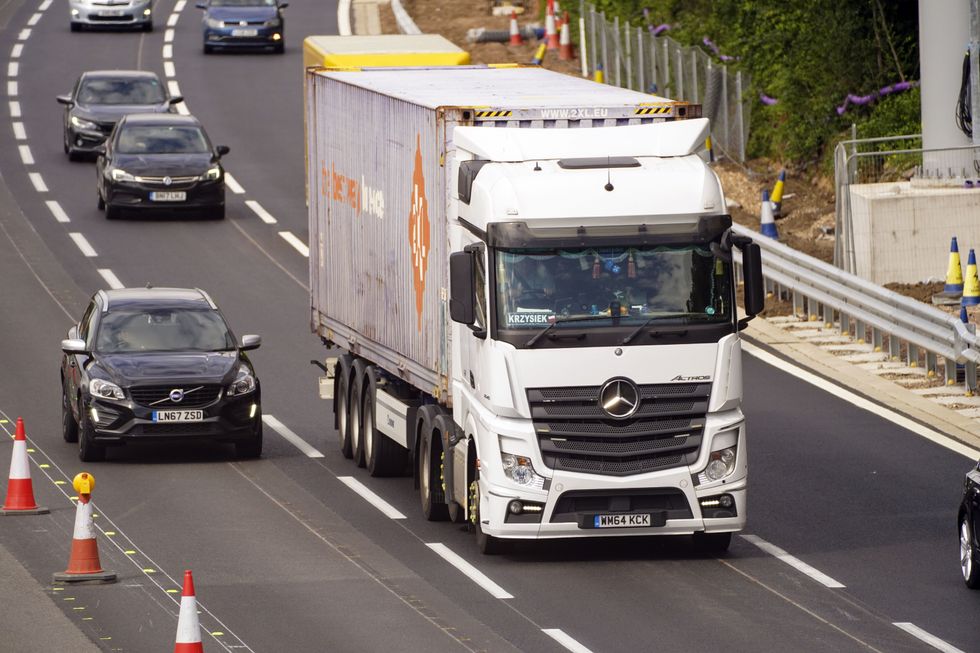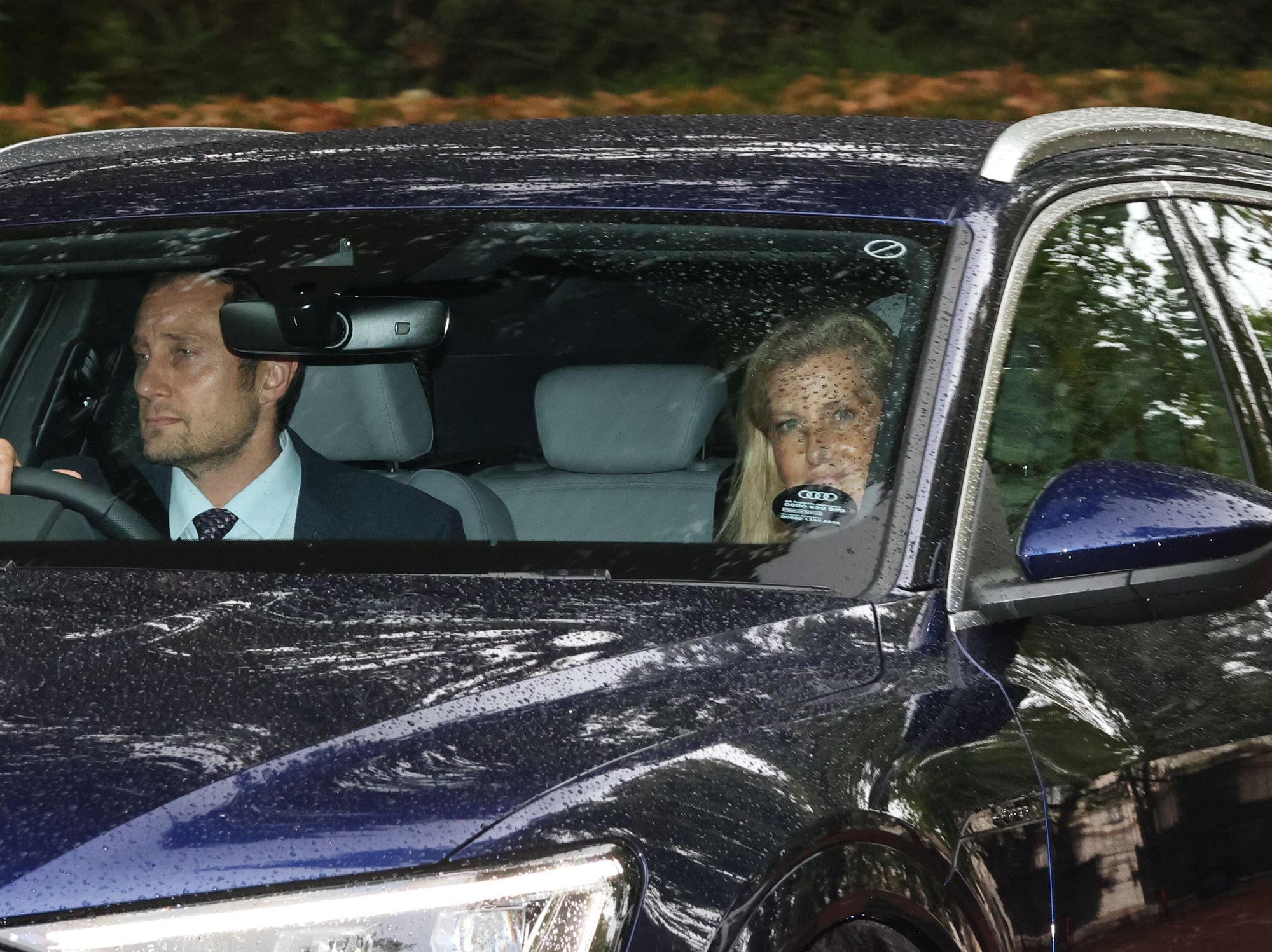Labour 'cannot deliver net zero and air quality' goals under current plans as HGV pollution disrupts progress

The UK requires vans and trucks to be electric by 2035
Don't Miss
Most Read
Latest
The UK risks failing to meet its net zero targets and improve air quality unless it ramps up progress in decarbonising crucial vehicles, experts have warned.
With Government deadlines requiring all new vans and trucks up to 26 tonnes to be zero emission by 2035, and the remainder by 2040, the clock is ticking for the commercial vehicle sector to transform.
Mike Hawes, Chief Executive of the Society of Motor Manufacturers and Traders, issued a stark warning that the UK "cannot deliver net zero and improve air quality without decarbonising commercial vehicles."
He warned that if operators have to wait up to 15 years just to be able to plug them into their depots, "there is no case for investment".
Do you have a story you'd like to share? Get in touch by emailing motoring@gbnews.uk

Zero emission HGVs only represents one per cent of all HGVs in the first quarter of the year
|GETTY
Commercial vehicles represent a significant portion of the UK's transport sector, with approximately 5.1 million vans and 626,000 trucks currently on British roads.
These vehicles transport more than 80 per cent of all domestic freight and contribute £13.5billion directly to the economy each year.
Despite making up just 14 per cent of all vehicles on the road, commercial vehicles are responsible for more than a third of all road transport CO2 emissions due to their higher mileages and energy demands.
They account for almost an eighth (12 per cent) of the UK's total carbon footprint, highlighting their outsized environmental impact the SMMT found.
While the Zero Emission Vehicle Mandate requires 16 per cent of new van sales to be zero emission vehicles in 2025, the current uptake has been lagging significantly behind this target.
Electric van registrations are currently running at just 8.3 per cent, with around 167,000 more expected to reach the road over the next three years.

More hydrogen-fuelled vehicles have been released by fleets in the UK
|GETTY
The situation is even more concerning for Heavy Goods Vehicles, with the first quarter of 2025 seeing zero emission vehicles representing only one per cent of overall demand in the new HGV market.
The Government has introduced measures to help the industry transition, including the Plug-in Truck Grant and a £200million Zero Emission HGV and Infrastructure Demonstrator programme, but experts agree that further action is needed.
Lorna McAtear, head of fleet at National Grid and deputy chair at the Association of Fleet Professionals said: "If you have specialist converted vehicles less than 26 tonnes, and that includes 7.5 tonne vehicles that will be affected, there's a real issue around infrastructure and operations that needs to be solved in order to meet that 2035 deadline."
Temporary charging solutions at fleet depots have addressed immediate needs, but the network requires substantial power connections to support multiple charging bays, particularly at motorway services.
LATEST DEVELOPMENTS:
The SMMT has called for reforms to be introduced to the Plug-in Truck Grant scheme and prioritisation of grid connections to depots.
But many companies have already been investing in the transition to net zero with Amazon purchasing 140 new electric Mercedes-Benz eActros 600 trucks and eight Volvo FM zero emission lorries, as well as installing 360kW charging points at key sites.
David Langford, Protium's project delivery head, explained that HyHAUL plans to open at least three public refuelling stations to power an initial fleet of 30 hydrogen fuel cell HGVs along the M4 corridor by 2026.
Despite these initiatives, Michelle Gardner, Logistics UK's Deputy Policy Director, emphasises that success depends on partnership.

HGV drivers will need to ensure their vehicles meet the net zero rules
| PAShe said: "The logistics sector is committed to decarbonising, but this must be a fair transition that keeps costs down for businesses, public services and households while maintaining resilient supply chains."










